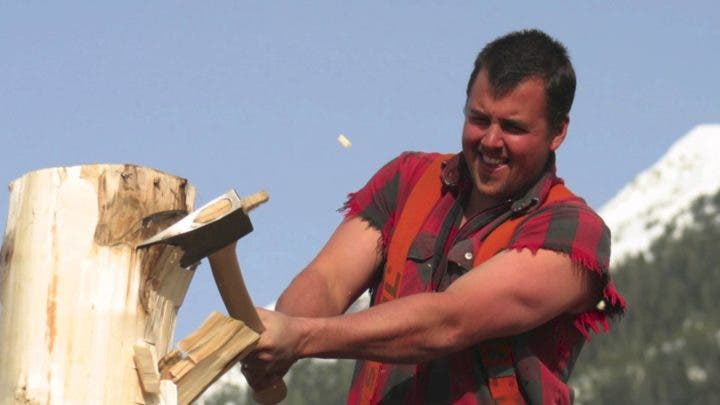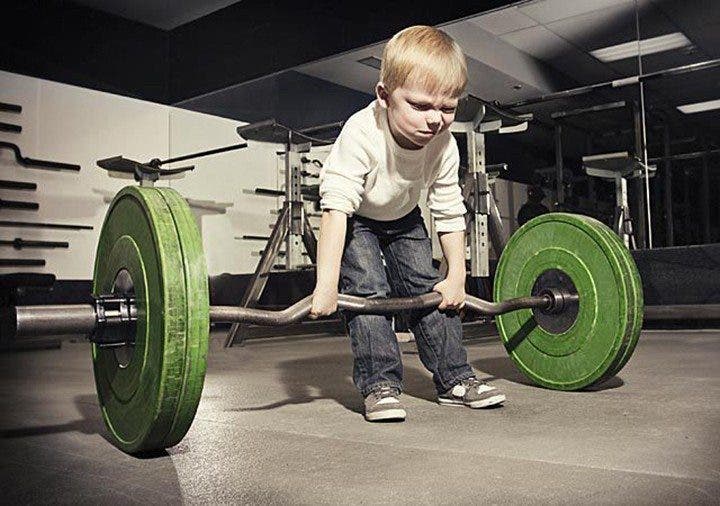Weightlifting is a sport that focuses on gaining strength and whose main objective is to lift a weight load from the ground to overhead. It was included as an Olympic sport in the first modern Olympiad held in Athens in 1896. Currently this discipline is regulated and regulated by the International Weightlifting Federation (IWF) which has 167 affiliated nations and organizes official competitions every year.
Training for this discipline involves the development of physical strength, mental control, technique and speed . Many athletes from different disciplines such as athletics or American football integrate weightlifting as part of their preparation to increase explosive strength.
However, this sport for years has been surrounded by mostly negative beliefs that are due to misinformation and the little knowledge that the public has about this practice. If you go to the gym regularly you will hear all kinds of contradictory comments about weightlifting so sometimes it is difficult to separate the fiction from the truth.
Learn about the 10 most famous myths associated with weightlifting and discover why they are not true. Hopefully they encourage you to try this wonderful sport.
1. Lifting weights makes you fat
For your muscles to grow, in addition to exercising with weights, you will have to eat more calories and that extra consumption will result in an increase in body fat. Therefore, it is the diet that influences the weight gain and not the exercise itself.
2. Fat helps with lifting weights

Only muscle can move your bones and therefore lift weights. Fat is not involved in any of this. Some weight lifters may have a higher percentage of fat because they focus on increasing their muscle mass and strength, not on defining abs, so they design their diet and exercises to achieve these results. The extra fat is a consequence of accumulating as much muscle as is humanly possible.
3. Weightlifting slows you down
Just pay attention to some athletes who train with weights, for example, fighters or heavyweight boxers and you will see that in action they do not look slow at all.
4. Women’s muscles are not as strong as men’s.
There is no difference between the muscle fibers of women and those of men. Women naturally have less muscle mass than men because they have less testosterone , which promotes muscle growth. However, if a woman goes through a good workout she can become as strong as any man.
5. Weightlifting and powerlifting are the same.
This is an error in the use of terms in which both the media and the general public have fallen for years. It is more appropriate to use the term powerlifting as equivalent to weightlifting , because in effect it is strength that is measured in athletes during competitions.
6. Weightlifting doesn’t make you as strong as hard work does.

Olympic weightlifting is a sport that requires specialized preparation. While carrying large bales of hay, working with a pick and shovel, or being a lumberjack are all activities that require a lot of energy, they do not make you a good weightlifter, as they do not amount to progressive training.
7. Weightlifting is a second-rate sport
No matter how strong you are or have an Olympic champion title, they will always ask you: How far could you throw a baseball? o Could you score with three points? The truth is that this is not important, those are different disciplines that exist by themselves. Nobody asks a basketball player how many kilos he can lift.
8. Lifting weights stops growth
In the 70s a group of researchers concluded that if a child lifted weights it could damage the growth plate of the bones and also cause a decrease in testosterone . This, coupled with the observation that many weightlifters were shorter than average, led to the erroneous belief that weights impeded the proper growth and development of their strength. However, lifting weights does not stop growth.
It is now known that short stature is due to poor nutrition and is also related to genetic inheritance from parents.
Weightlifters are very often short people due to their own genetics and choose weightlifting because in this sport being short is a mechanical advantage over taller competitors when lifting loads and maintaining balance.

9. Field training is being replaced with weight lifting
This myth comes from some coaches who resist the idea of adding weight training in the preparation of athletes from various disciplines.
However, weights are not a substitute for practice on the field of play, but are considered as allies and complementary to all sports because they develop the strength required in disciplines such as athletics, boxing, soccer and swimming.
10. Weightlifting women are not as good as men.
This belief is the result of the attitude of the public that sometimes tends to make comparisons between men and women. Fortunately, there are female and male categories and they are considered in competitions as different events and with different expectations.
References
- Dresdin Archibald, 10 Myths About Olympic Weightlifting That Need to Stop. For Breakingmuscle [Revised October 2015]

